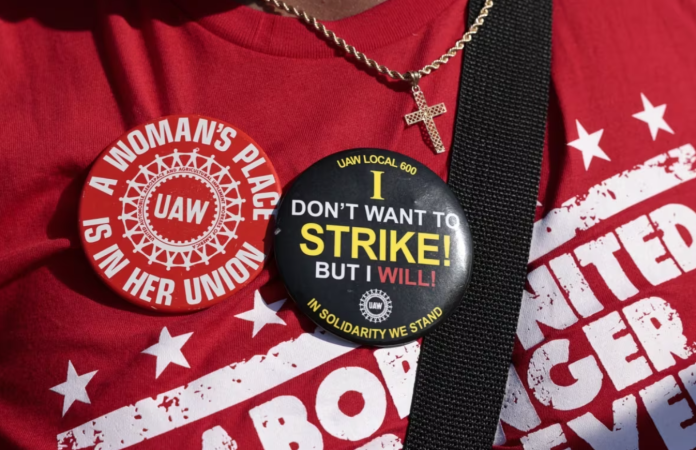About 13,000 auto workers walked off the job and went on strike after leaders of General Motors, Ford and Stellantis failed to meet the union’s demands.
On Friday, members of the Auto Workers Union began picketing the General Motors assembly plant in Wentzville, Missouri, the Ford plant in Wayne, Michigan, and the Stellantis Jeep plant in Toledo, Ohio.
The companies’ four-year contracts expired at 11:59 p.m. Thursday. This is the first time in the union’s 88-year history when three companies have dropped working at once.
The strikes come against the backdrop of the historic US transition from internal combustion engine vehicles to electric cars. The protests may determine the future of both the union and the domestic automotive industry.
If workers continue to protest, dealers may eventually run out of cars, which will lead to higher prices. Moreover, the strike could affect next year’s presidential elections. It would call into question Joe Biden’s claim that he supported unions more than any other president in American history.
Liz Shuler is the president of the AFL-CIO, a federation of 60 unions with 12.5 million members. She said the strike is being watched by workers “all over the world.”
Workers all over the world are watching this.
This protest is very different from strikes during previous UAW negotiations. This time the union, led by new president Shawn Fain, is striking at three major companies at once. However, only just under 10 per cent of the UAW’s total membership is on strike so far. The organisation has 146,000 workers.
With the help of strikes, the UAW plans to force companies to raise offers to the level of union demands. The association is asking for a 36 per cent salary increase over four years. GM and Ford offered 20 per cent. Stellantis, formerly Fiat Chrysler, offered 17.5 per cent.
The companies held simultaneous negotiations with the union representing almost 150,000 workers. Its leaders are not satisfied with the current terms of co-operation and are threatening to close Motor City if the situation does not change.
The union is demanding a 40 per cent wage increase, but the companies have offered raises of just 20 per cent, without the key benefits mentioned by the union.
Since the UAW has an $825 million strike fund, auto giants may face serious consequences if the conflict drags on.
